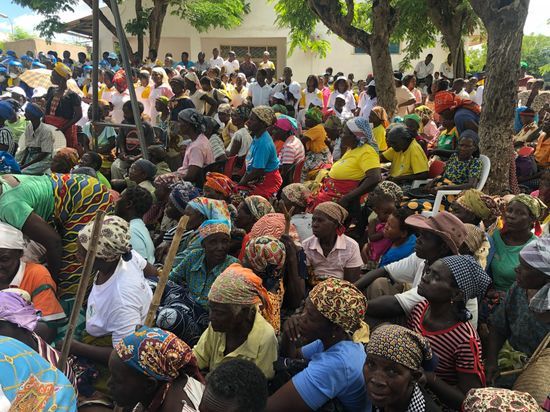
Existing inequities have been widely acknowledged as barriers to achieving global and national goals and targets in HIV, tuberculosis (TB) and malaria programmes. Monitoring inequalities in these three diseases provides insight into how they are experienced across population subgroups and who is being left behind. This course introduces the general steps of inequality monitoring in the context of HIV, TB and malaria, which should be an integral part of country programmes.
Photo credit: WHO / Dalia Lourenco
语言: English
课程信息
Equity is essential to the Sustainable Development Goal principle of ‘leaving no one behind’, as well as central to the WHO GPW13 objective of ‘serving the vulnerable’.
Accelerating prevention and control efforts among disadvantaged populations who are most at risk is integral to ending the epidemics of AIDS, TB and malaria. Accordingly, equity is also a focus of global strategies for each disease (including the UNAIDS Global AIDS Strategy 2021-2026, the WHO End TB Strategy, the WHO Global Technical Strategy for Malaria 2016-2030, and the Global Fund 2023-2028 Strategy Framework).
Monitoring inequalities in HIV, TB and malaria is an important part of efforts to promote equity. It provides insight into how the diseases are experienced across population subgroups. The results of inequality monitoring can guide the development of subsequent in-depth studies to understand the sources and drivers of health inequalities, and help to inform equity-oriented responses where warranted.
This course examines the five general steps of inequality monitoring in the context of HIV, TB and malaria programmes. The target audience is primarily monitoring and evaluation officers for HIV, TB and malaria programmes and people who have basic knowledge and experience working with HIV, TB and malaria data.
Learning objectives: By the end of this course, learners should be able to:
- summarise the five steps of inequality monitoring in HIV, TB and malaria;
- describe how to determine the purpose and scope of monitoring;
- describe how to obtain data for inequality monitoring;
- describe basic analytical methods to analyse inequality data;
- apply good practices in reporting the state of inequality in HIV, TB and malaria to the target audience;
- describe the process of knowledge translation, or promoting the use of data to inform equitable programmes and policies.
Course duration: Approximately 2 hours.
Certificates: A Record of Achievement will be available to participants who score at least 80% of the total points available in the final assessment. Participants who receive a Record of Achievement can also download an Open Badge for this course. Click here to learn how.
课程内容
Introduction:
This introductory module gives an overview of monitoring inequality in the context of HIV, TB and malaria.Module 1: Determine scope of monitoring:
By the end of this module, you should be able to: explain the processes of deciding on the population, identifying relevant HIV, TB and malaria indicators, and identifying relevant dimensions of inequality.Module 2: Obtain data:
By the end of this module, you should be able to: explain how to conduct data source mapping; and describe how to determine whether sufficient data are currently available to conduct inequality monitoring.Module 3: Analyse data:
By the end of this module, you should be able to: describe how to prepare and use disaggregated data; and explain how to calculate simple summary measures of inequality.Module 4: Report results:
By the end of this module, you should be able to: explain how to define the purpose of reporting and the target audience; describe decisions surrounding the scope of reporting, the technical content and the methods of presenting data; and describe best practices in reporting results of inequality monitoring.Module 5: Knowledge translation:
By the end of this module, you should be able to: describe how to identify priority areas for action; describe how to contextualize findings; explain the importance of integrating equity considerations into HIV, TB and malaria programmes and policies; and explain the importance of identifying opportunities for intersectoral collaboration.Final assessment